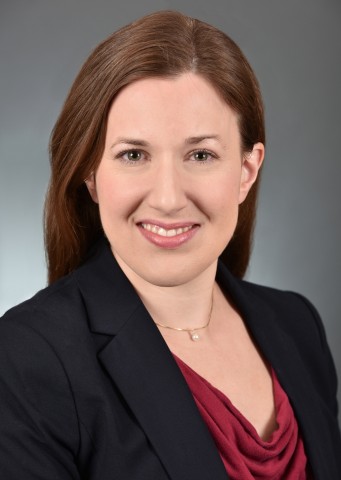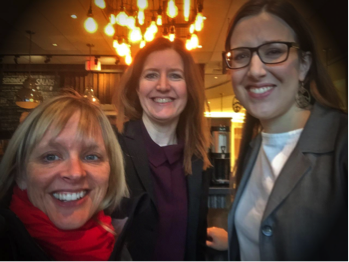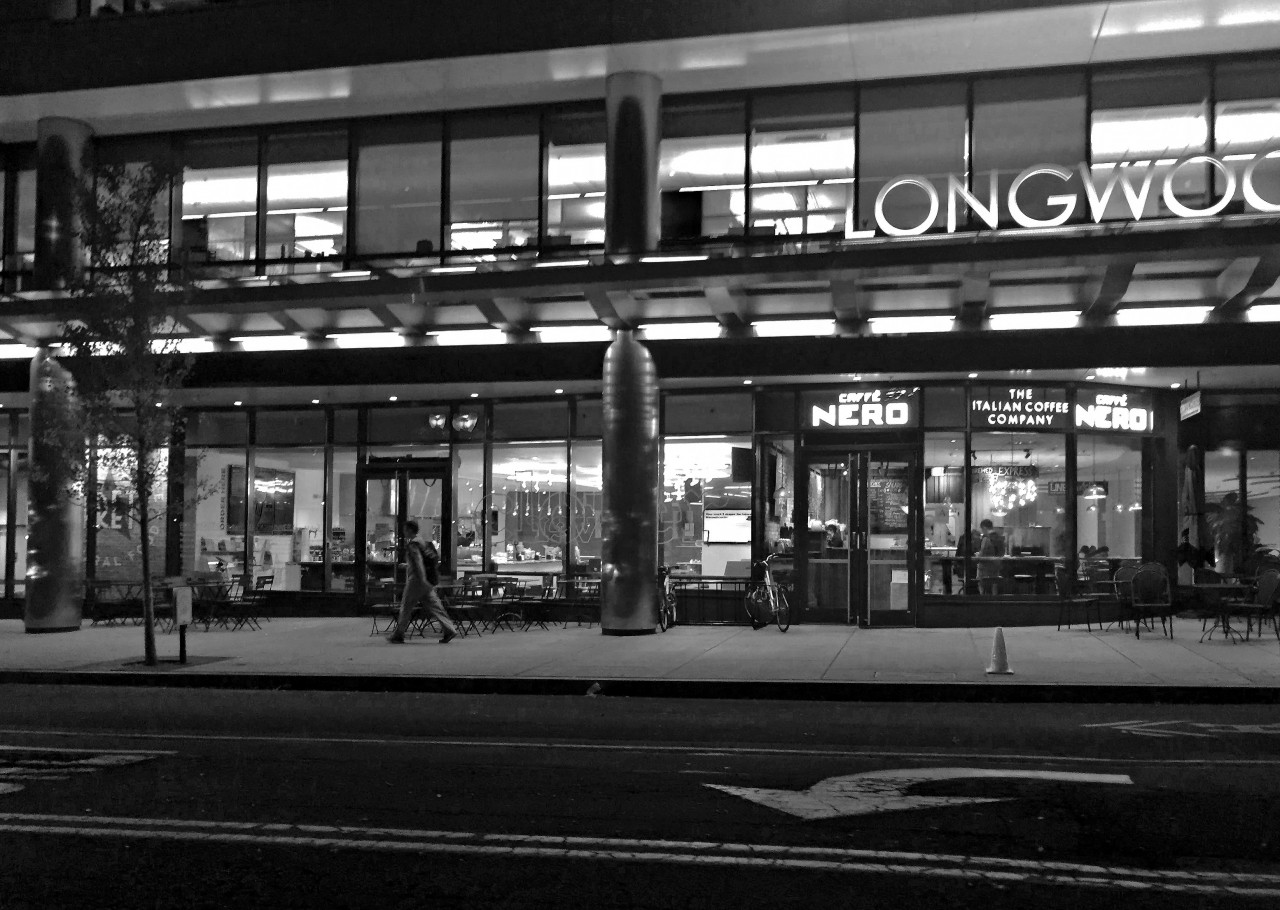The Caffe Nero on Longwood Avenue couldn’t have been a more perfect place to reflect with Teresa Soro and Elissa Hall on the October #HMIChat I moderated, and not just because of the great lattes. October’s chat on “Learners-as-Educators” discussed how to develop health professions learners at every level into teachers themselves. I love the pay-it-forward nature of this idea, that everyone has something to contribute to and to inspire the next generation of learners. It had been at Caffe Nero that I decided--as a trainee--to dedicate my career to medical education, so returning there to talk about this topic resonated deeply.
Now here I am back at Caffe Nero, blocks away from the school and hospital where I hold my new faculty position as a clinician-educator, with two stars of my education community of practice, reflecting on the October #HMIChat dialogue of the educators--and learners! who joined us and the lessons they shared about being inquisitive teachers, effective coaches, near-peer allies, and lifelong learners.

Our observation of the #HMIChat was that the subject of Learner-as-Educator was powerful and impacted many--not only because of the diversity of those contributing to the chat, but also because the energy around the topic started before the first synchronous chat and continued well after the 24 hours of the chat. A few key themes which emerged from the reflection included:
- Education is a collaborative process and it is essential/desired for learner-educator and/or near-peer educators to engage in learning from one another as well as to reflect on being an educator.
- The characteristics of a good educator are not limited to just an education role. For example, Daniel Pepe mentioned the Three H’s: Humility, Honesty, and Hard Work. These are transferrable across health professional roles and responsibilities including good patient care and effective education leadership, harking back to our August #HMIchat.
- An educator is a coach and can employ coaching strategies to advance learning. However, the dialogue still continues around whether the educator needs to be a subject expert to be a coach. Deeper dives brought us to Vygotsky’s Zone of Proximal Development and Ericsson’s Deliberate Practice to further the dialogue.
- Being an educator is a cyclic process. Not only do we educate others, especially patients as noted by Holly Gooding, but those we educate are educating us in return as noted by Keith Wilson.
Stop and reflect on your journey as a health professions educator. I have, as shared below. I hope my journey, and all our journeys as health professions educators, can pay it forward and inspire another generation of learners.

My Journey as a Learner as Educator: I became interested in medical education as soon as I found out it existed as a field, becoming captivated by the idea of medical education reform as a pre-med and then meeting my first medical educators as a medical student. As a fourth-year medical student, I learned basic learning theory and applied it to precepting second-year students through a teaching elective.
As a resident in pediatrics and child neurology, I pursued teaching opportunities and a mentored education rotation, and then went to medical education bootcamp: the Harvard Macy Institute Program for Post-Graduate Trainees: Future Academic Clinician-Educators. Using my Macy skills, as a chief resident in child neurology I developed and led a clinical teaching skills curriculum for my co-residents--I was a resident teaching residents how to teach as residents!
During my clinical fellowship, I realized what in retrospect had been clear all along: I wanted to be a medical educator. After many cups of coffee at Caffe Nero with people who had made the same decision, learning about all the different pathways available, I pursued a Master’s in Education at the Harvard Graduate School of Education with the support of a Zuckerman Fellowship from the Center for Public Leadership.
(While there I even wrote a blog post about my first foray into medical education social media via a certain Twitter chat…)
Listen to the October 2017 #HMIchat podcast reflection
AUTHOR BIO

Miya Bernson-Leung, MD, EdM is an attending physician and medical educator at Boston Children’s Hospital Department of Neurology and an Instructor in Neurology at Harvard Medical School. She is Associate Program Director of the Child Neurology Residency Training Program and Associate Director of the Boston Children’s Hospital Academy for Teaching and Educational Innovation and Scholarship.
Twitter: @mbernsonleung
LinkedIn: https://www.linkedin.com/in/miya-bernson-leung/
With contributions from Teresa Soro (@teresasoro) {pictured middle} and Elissa Hall (@erhall1) {pictured left}

#hmichat
#hmichat has not set their biography yet

